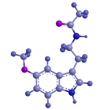
April is World Autism month. With one in 36 children now diagnosed with autism, this is a good time to review therapies often promoted for this condition. It’s important for providers to understand trending therapies so they can confidently counsel parents about what may and may not help, and what is and is not safe.
Melatonin is likely to come up. While there’s evidence that melatonin can improve total sleep time and the time it takes to fall asleep in children with autism, it’s unclear if it benefits behavioral symptoms – the available research on this wasn’t designed to evaluate its effects on behavioral symptoms as a primary endpoint. It’s been used safely in doses up to 12 mg daily, short-term – but daily doses should be limited to 3 mg daily for children and infants 6 months or older and 5 mg daily for adolescents. Additionally, make sure parents store all melatonin products out of the reach of children – particularly young kids who might confuse gummies or chewables with candy. There’s been an increase in melatonin overdoses in recent years.
You might also get questions about vitamin D. Two meta-analyses of observational research show that having low vitamin D levels during pregnancy is linked with a higher risk of the child developing autism. Explain to parents that this increased risk might only affect those with very low levels of vitamin D (serum level < 12 ng/mL). And there isn’t any strong clinical evidence showing that giving vitamin D supplements to children who have autism will benefit symptoms. Even so, there aren’t major safety concerns when used in doses below the tolerable upper intake level (UL) by age.
One of the more concerning trends is for turpentine oil. This started trending online back in 2019 when certain celebrities and online “experts” began promoting an alarming protocol. Proponents claimed that autism is caused by parasites and that turpentine oil can cure these infections in children. Make sure parents know that, regardless of what they may read in blogs or hear on podcasts, turpentine oil is NOT safe to ingest. Autism is a neurological disorder that is present at birth. It is not caused by parasitic infection. Furthermore, there is no evidence that turpentine oil is beneficial for treating infection.
Check out our comparative effectiveness chart to learn about other therapies studied for autism, including music therapy and animal-assisted therapy.
The information in this brief report is intended for informational purposes only, and is meant to help users better understand health concerns. This information should not be interpreted as specific medical advice. Users should consult with a qualified healthcare provider for specific questions regarding therapies, diagnosis and/or health conditions, prior to making therapeutic decisions. Copyright © 2024 NatMed. Commercial distribution or reproduction prohibited. NatMed is the leading provider of high-quality, evidence-based, clinically-relevant information on natural medicine, dietary supplements, herbs, vitamins, minerals, functional foods, diets, complementary practices, CAM modalities, exercises and medical conditions. Monograph sections include interactions with herbs, drugs, foods and labs, contraindications, depletions, dosing, toxicology, adverse effects, pregnancy and lactation data, synonyms, safety and effectiveness.
